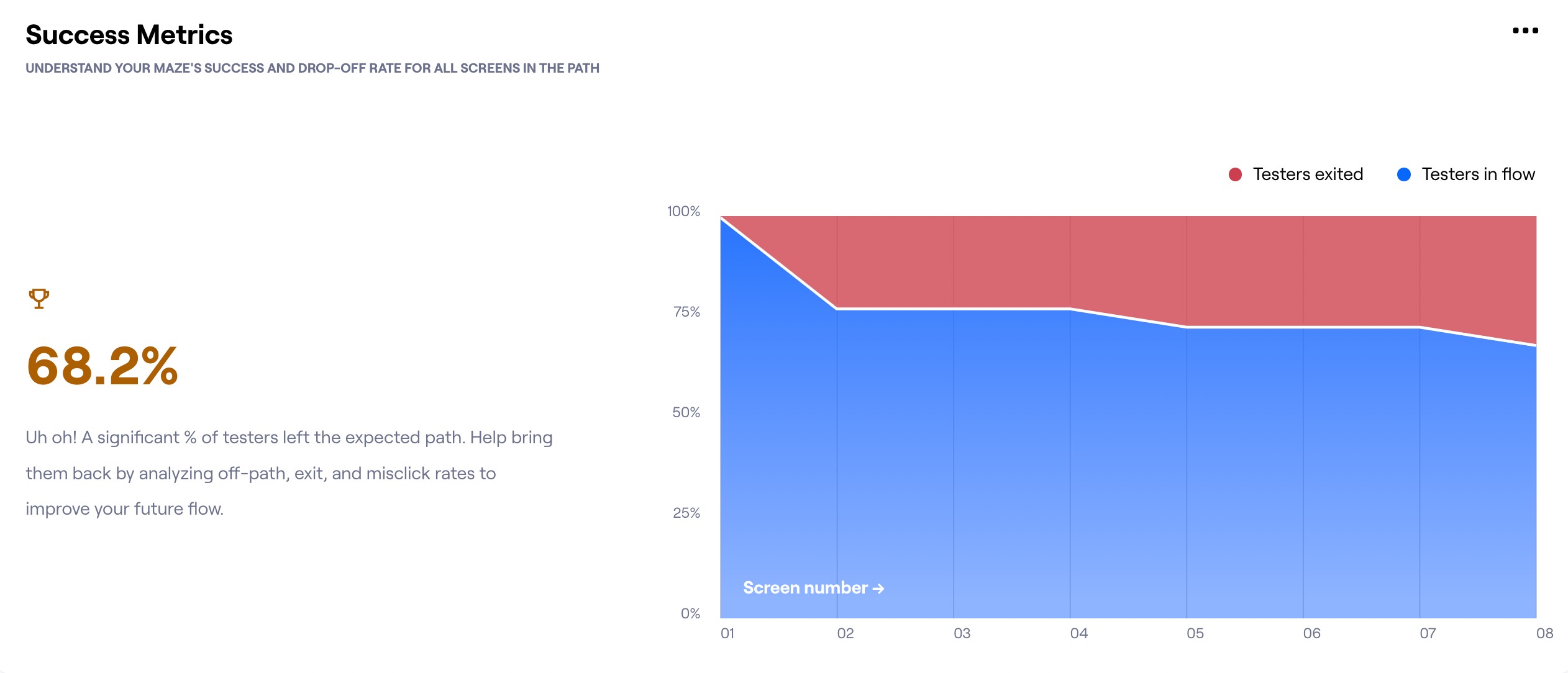
In today's dynamic digital landscape, where every click and conversion matters, deciphering the success of your online marketing efforts is crucial. Businesses invest significant resources in online marketing, ranging from SEOand social media to paid advertising, with the ultimate goal of boosting brand visibility and driving revenue.
However, amidst the vast expanse of the internet, how can you be sure that your online marketing is working effectively? In this comprehensive guide, we'll explore critical indicators and strategies to assess the performance of your digital marketinginitiatives.
Understanding The Metrics Maze
Effective online marketing begins with a clear understanding of key performance indicators (KPIs). Without a solid grasp of the metrics that matter, evaluating success becomes a challenging task. Let's delve into some fundamental metrics that can help you gauge the effectiveness of your online marketing efforts:
Website Traffic
Monitoring website traffic is a fundamental step in assessing your online presence. Tools like Google Analytics provide insights into the number of visitors, their demographics, and their behavior on your site. A consistent increase in organic traffic is a positive sign, indicating that your SEO efforts are driving more users to your website.
Conversion Rates
Ultimately, the success of your online marketing hinges on conversions. Whether it's making a purchase, filling out a form, or signing up for a newsletter, tracking conversion rates is essential. Low conversion rates signify a need for optimization in your website design, content, or user experience.
Social Media Engagement
Social media platforms are powerful tools for brand promotion. Evaluate your social media presence by analyzing engagement metrics such as likes, shares, comments, and click-through rates. A high level of engagement indicates that your content resonates with your audience.
Email Marketing Metrics
For businesses leveraging email campaigns, metrics like open rates, click-through rates, and conversion rates are crucial. Monitoring these metrics helps you understand the effectiveness of your email marketing strategy and whether your messages are resonating with your audience.
Return On Investment (ROI)
Ultimately, your online marketing efforts should contribute to your bottom line. Calculating the ROI involves comparing the revenue generated from your digital marketing activities to the cost of running those campaigns. A positive ROI indicates a profitable strategy, while a negative ROI may necessitate a reassessment of your approach.
The Role Of Search Engine Optimization (SEO)
Amidst the myriad of online marketing techniques, SEO plays a pivotal role in determining your website's visibility on search engines. An SEO-optimized website is more likely to rank higher in search results, leading to increased organic traffic. Here are some SEO-focused strategies to ensure your online marketing efforts are on the right track:
Keyword Research And Integration
Effective SEO begins with comprehensive keyword research. Identify the terms and phrases relevant to your business, products, or services and strategically integrate them into your website content. Regularly update your keyword strategy to align with evolving search trends.
Quality Content Creation
Search engines prioritize high-quality, relevant content. Regularly publishing informative and engaging content not only caters to your audience but also signals to search engines that your website is a valuable resource. Invest in content that answers user queries and addresses their needs.
Link Building
Backlinks from reputable websites enhance your site's credibility in the eyes of search engines. Implement a robust link-building strategy by reaching out to influencers, industry publications, and other relevant websites to secure quality backlinks. It can significantly improve your website's search engine rankings.
Mobile Optimization
With the prevalence of mobile devices, optimizing your website for mobile users is non-negotiable. Search engines prioritize mobile-friendly websites, and failure to comply can result in lower rankings. Ensure that your website design is responsive and provides a seamless experience across various devices.
Technical SEO Audit
Regularly conduct technical SEO audits to identify and address issues that may affect your website's performance. It includes optimizing page load times, fixing broken links, and ensuring proper indexing by search engines. A technically sound website is more likely to rank higher in search results.
Advanced Analytics Tools For In-Depth Insights
In the fast-paced world of digital marketing, gaining in-depth insights is the key to staying ahead of the competition. Basic metrics provide a foundation, but for a more profound understanding of user behavior and campaign performance, leveraging advanced analytics tools is imperative. Let's explore some cutting-edge tools that offer in-depth insights for strategic decision-making:
Heatmaps And User Session Recording
What They Offer
- Visual representation of user interaction on your website.
- Heatmaps showcase where users click, move, and spend the most time.
- User session recordings capture individual journeys, revealing pain points and areas of interest.
Why They Matter
- Identify hotspots and optimize your website layout for improved user engagement.
- Uncover user behaviors that may need to be evident through traditional analytics.
- Fine-tune your website based on fundamental user interactions, enhancing overall user experience.
Tools to Explore
- Hotjar
- Crazy Egg
A/B Testing
What It Offers
- A method to compare two or more versions of a webpage or marketing element.
- Allows marketers to test changes and determine which variant performs better.
- Provides actionable data for optimizing conversion rates.
Why It Matters
- Enables data-driven decision-making by testing hypotheses in a controlled environment.
- Identifies the most effective elements of a campaign, leading to continuous improvement.
- Minimizes guesswork and ensures that changes are based on user behavior.
Tools To Explore
- Optimizely
- Google Optimize
Marketing Automation Platforms
What They Offer
- Automated workflows for repetitive marketing tasks.
- Detailed analytics on user interactions with automated campaigns.
- Integration with customer relationship management (CRM) systems for comprehensive insights.
Why They Matter
- Saves time and resources by automating manual processes.
- It provides a holistic view of customer interactions across various touchpoints.
- It Enhances lead nurturing and segmentation for more targeted marketing.
Platforms To Explore
- HubSpot
- Marketo
Behavioral Analytics
What It Offers
- Advanced analytics focusing on user behavior patterns.
- Metrics like page scroll depth, time spent on pages, and click heatmaps.
- Insights into how users navigate and engage with your website.
Why It Matters
- Reveals user preferences and pain points, allowing for targeted improvements.
- Assists in understanding the effectiveness of specific elements on a page.
- Guides content creation and website optimization strategies.
Tools To Explore
- Google Analytics (Behavior Flow)
- Mixpanel
Predictive Analytics
What It Offers
- Analyzes historical data to predict future trends.
- Models user behavior and helps in anticipating future actions.
- Aids in making proactive decisions based on forecasted insights.
Why It Matters
- Assists in preparing for upcoming shifts in consumer behavior.
- Guides marketing strategies with a forward-looking perspective.
- It Enhances overall business agility and preparedness.
Tools To Explore
- Salesforce Einstein Analytics
- IBM Predictive Analytics
User Segmentation Tools
What They Offer
- Segmentation is based on demographics, behavior, and preferences.
- Allows marketers to create targeted campaigns for specific audience segments.
- It Provides insights into the unique needs and interests of different user groups.
Why They Matter
- Improves personalization by delivering content relevant to each audience segment.
- Enhances the effectiveness of marketing messages by catering to specific demographics.
- It enables more precise targeting, maximizing the impact of campaigns.
Tools To Explore
- Google Analytics (Audience Builder)
- Segment
In the realm of digital marketing, where data reigns supreme, these advanced analytics tools serve as indispensable assets. By harnessing the insights provided by these tools, marketers can make informed decisions, optimize campaigns, and ensure a strategic edge in an ever-evolving landscape.
Remember, the true power of analytics lies not just in the data collected but in the actionable insights derived from it.
Adapting To Changing Trends
The digital landscape is dynamic, with trends and consumer behavior evolving rapidly. Staying ahead requires a commitment to continuous improvement and adaptation. Here are strategies to ensure your online marketing remains agile:
Stay Informed About Industry Trends
Regularly monitor industry news, changes in search engine algorithms, and emerging technologies. Staying informed allows you to proactively adjust your online marketing strategies to align with current trends.
Audience Feedback And Surveys
Direct feedback from your audience provides valuable insights into their preferences and expectations. Use surveys, social media polls, and customer feedback to understand what resonates with your audience and tailor your marketing efforts accordingly.
Competitor Analysis
Keep a close eye on your competitors' online marketing strategies. Analyzing their successes and shortcomings can offer valuable lessons and inspire innovation in your approach.
Embrace New Technologies
As technology advances, new marketing channels and tools emerge. Explore innovative technologies such as augmented reality, virtual reality, or voice search optimization to stay at the forefront of digital marketing trends.
FAQs
Why Is A/B Testing Important For Online Marketing?
A/B testing allows marketers to compare different versions of a webpage or element, providing concrete data on what resonates best with users. This method minimizes guesswork, leading to continuous improvements and increased conversion rates.
How Can Heatmaps Benefit My Website's User Experience?
Heatmaps visually depict user interactions on your website, highlighting areas of interest and engagement. By analyzing heatmaps, you can optimize your website layout, improving overall user experience and increasing engagement.
What Role Do Predictive Analytics Play In Digital Marketing?
Predictive analytics analyzes historical data to forecast future trends and user actions. This forward-looking approach helps businesses anticipate shifts in consumer behavior, allowing for proactive decision-making and strategic planning.
How Do Marketing Automation Platforms Contribute To In-depth Analytics?
Marketing automationplatforms streamline repetitive tasks and provide detailed analytics on user interactions. By automating processes, these platforms offer a comprehensive view of customer interactions, enhancing lead nurturing and segmentation for more targeted marketing.
Why Is User Segmentation Crucial In Online Marketing?
User segmentation tools categorize audiences based on demographics, behavior, and preferences. It allows marketers to create targeted campaigns, delivering personalized content to specific audience segments. User segmentation enhances the effectiveness of marketing messages and maximizes the impact of campaigns.
All Things Considered
In the ever-evolving realm of online marketing, the key to success lies in a comprehensive and adaptable approach. By understanding and monitoring essential metrics, optimizing your website for search engines, and embracing advanced analytics tools, you can gain valuable insights into the effectiveness of your digital marketing efforts. Remember, success is not static; it requires ongoing analysis, optimization, and a commitment to staying ahead of the curve.
Keep your finger on the pulse of the digital landscape, and your online marketing endeavors will not only thrive but lead to sustained, long-term success for your business.


